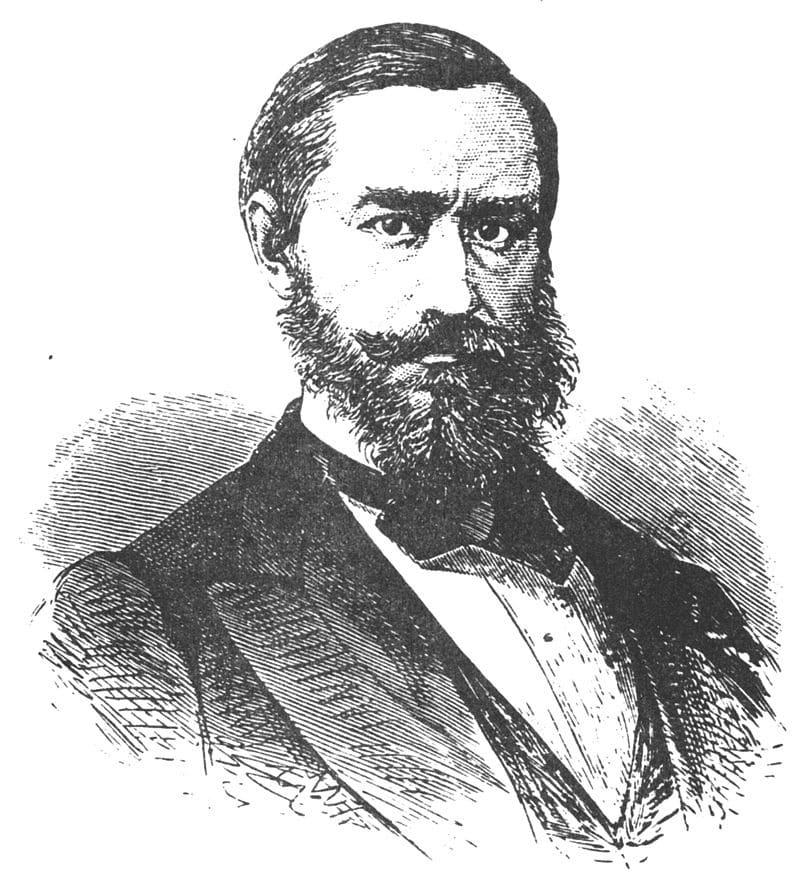Henry Duveyrier was a famous explorer from France.

He was born in Paris, France, as the oldest son to Charles Duveyrier, who was a well-known dramatist, and his wife Ellen Claire nee Denie from England. Like many who performed in the fine arts in the 19th century, he was a follower of the utopian (perfect society) philosophical movement started by Henri de Saint-Simon.
In 1857 and 1858, Duveyrier spent some months in London, where he met Heinrich Barth, then preparing an account of his travels in western Sudan.
Jump to:
Travels into Africa
Henri Duveyrier was the guest of Auguste Warnier in 1857 at his home in Kandouri, a suburb of the city of Algiers. While in Algiers, Duveyrier met Oscar MacCarthy. The two men would embark on a five-week trip to Laghouat and back on March 8, 1857.
On the trip, Henri Duveyrier met the Tuaregs, with whom he became fascinated. While with the Tuaregs, he studied their culture and customs and wrote an account. This account would then be given to the Berlin Oriental Society the following year.
While studying the Tuaregs, Duveyrier learned of the Tuat people, and he wanted to make contact and learn about their customs. However, this would prove to be difficult and, unfortunately, did not happen.
Duveyrier left in May 1859 and, after an exhausting journey, returned to Warnier's house on 5 December 1861, emaciated and delirious with fever. In 1864, two years after returning to France, he published Exploration du Sahara: les Touareg du Nord (Exploration of the Sahara: Tuaregs of the North), for which he received the gold medal of the Paris Geographical Society.
In the Franco-Prussian War of 1870, he was taken prisoner by the Germans. After his release, he made several further journeys in the Sahara, adding considerably to the knowledge of the regions immediately south of the Atlas Mountains, from the eastern confines of Morocco to Tunisia.
He also examined the Algerian and Tunisian chotts and explored the interior of western Tripoli. Duveyrier devoted special attention to the customs and speech of the Tuareg people, with whom he lived for months at a time, and to the organization of the Senussi.
In 1881 he published La Tunisie, and in 1884 La confrérie musulmane de Sîdî Mohammed ben Alî-Senoûsi et son domaine géographique en l'année 1300 de l'Hégire.
Duveyrier was adversely affected by the tragedy that befell the Flatters Expedition of 1880-1, which put an end to the proposed Trans Sahara railway and military expansion in the region.
Those who had dreamed of transforming the Tuareg into linemen for camel railway crossings blamed Duveyrier for their disappointment. Duveyrier's only error was in having described the Tuareg as veiled, turbaned medieval paladins, but the explorer was already shaken by the premature death of his fiance and embittered by the controversy.
Devastated and depressed, Henri Duveyrier passed away suddenly in 1892.
